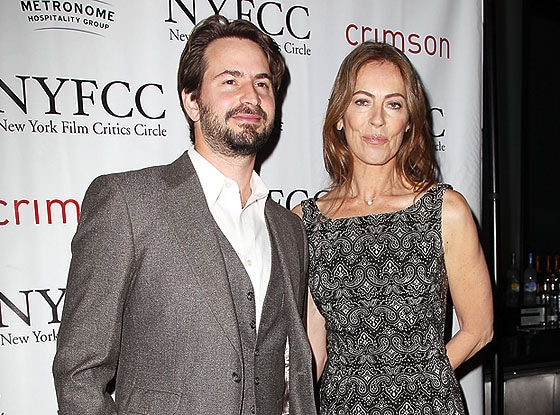 Kristina Bumphrey/Startraksphoto.com
Kristina Bumphrey/Startraksphoto.comSince its release, Zero Dark Thirty has sparked debate about the movie's frank depiction of torture and whether such acts committed by the U.S. in the War on Terror mislead audiences into thinking torture played a role in the capture and killing of Osama bin Laden.
Now director Kathryn Bigelow and screenwriter and producer Mark Boal are standing up for their rights as artists to explore such morally challenging territory.
Appearing at the New York Film Critics Circle ceremony to accept awards for Best Director and Best Picture Monday night, the duo defended the film for including the torture scenes and also addressed a Senate investigation looking into whether members of the CIA unlawfully gave classified information to the filmmakers to help them tell their story.
"I thankfully want to say that I'm standing in a room of people who understand that depiction is not endorsement, and if it was, no artist could ever portray inhuman practices; no author could ever write about them; and no filmmaker could ever delve into the knotty subjects of our time," Bigelow told the audience of critics and media.
Boal, Bigelow's collaborator who first worked with her on The Hurt Locker, told E! News earlier in the evening that he and the director really didn't expect ZDT to garner this level of controversy.
"No, I don't think we quite expected that," said Boal, adding, "It was a little bit of a surprise, but I hope that people go to see the move and judge for themselves."
Zero Dark Thirty opens with graphic scenes of enhanced interrogation techniques that were implemented by the Bush administration after 9-11, techniques like waterboarding and sexual humiliation that are illegal under international law. But many political commentators have pointed out that by including the dark side of the government's hunt for Al Qaeda, it may give viewers the wrong impression: that the brutal interrogation methods worked and are the reason we found Bin Laden.
In fact nothing could be further from the truth—as Senator Diane Feinstein, the chairman of the Senate Intelligence Committee, and Senator John McCain, who was tortured during his service in Vietnam—publicly stated last month, fearing such scenes could perpetuate a myth.
The two joined Senator Carl Levin in sending the head of Zero Dark Thirty's distributor, Sony Pictures Entertainment chairman Michael Lynton, a letter, saying "have a moral obligation to get the facts right" and noted that the Al Qaeda leader was found through the "hard work and dedication" of intelligence professionals, not in any way through "coercive interrogation techniques."
What the flick does extraordinarily well is tell the gripping account of a CIA operative (Jessica Chastain) doggedly pursuing Bin Laden's courier, who unknowingly leads the U.S. to the terrorist's hideout in Abbottabad, Pakistan, culminating in the raid that ended in Bin Laden's death.
Upon taking the podium later to receive best picture honors, Boal seemingly alluded to the Senate inquiry by bringing up the recent news of a CIA officer who's now facing prison time for talking to journalists about waterboarding. He also stood by his work on Zero Dark Thirty.
"I stand here tonight being extremely proud of the film we made," he said. "I think at the end of the day, we made a film that allows us to look back at the past in a way that gives us a more clear-sighted appraisal of the future."
—Reporting by Alicia Quarles